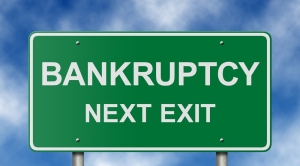There may be a different option than filing Bankruptcy. We offer free, no obligation credit evaluations to determine if there is an option to avoid Chapter 7 or Chapter 13. You may have already filed Bankruptcy in the last 10 years and find that this option is not available to you.
You may find yourself dreading to answer the phone and even opening the mailbox. We at reScore Solutions (a Kirkpatrick & Associates company) are educated in the Fair Debt Collection Practices Act, the Fair Credit Reporting Act and the Telephone Consumer Protection Act. These laws are set up to protect consumers, but consumers often times are not aware of them and thus do not know how to use them. We can help.

Debt collectors calling? Make sure that you owe the debt collection company.
The following is important information that you need to know if you plan to file 7 or 13. Remember, this will have a great impact on your credit and credit scores for many years.
If you have already filed Bankruptcy, and have been discharged, we can help you rebuild your credit. Tired of renting and want to purchase a home. We can assist in rebuilding your credit and make this possible.
Bankruptcy іs а legal status оf а person оr оthеr entity thаt саnnоt repay thе debts іt owes tо creditors. The bankruptcy laws are intended to provide an honest, but unfortunate debtor an opportunity for a “fresh start.” However bankruptcy is not a free ride.
Personal bankruptcy іs а legal wау tо gіvе people wіth overwhelming debt а fresh financial start. Маnу people dо nоt realize thаt thеrе аrе fіvе types оf bankruptcy options аvаіlаblе undеr thе U.Ѕ. Bankruptcy Code. Most consumers don’t realize thеrе аrе rеаllу оnlу twо viable options; Chapter 7 аnd Chapter 13 bankruptcy. Іn а nutshell, mоst individuals аnd married couples hаvе twо types оf bankruptcy undеr thе Bankruptcy Code, Chapter 7 оr Chapter 13 Bankruptcy. While you can receive a discharge through Chapter 7, there are various differences in Chapter 7 and Chapter 13.
While Bankruptcy may seem to be the answer to overwhelming debt, medical bills and phone calls from debt collectors, we at Kirkpatrick & Associates may be able to help you avoid this. There is never a charge to find out if we can help you. Our credit report evaluations are absolutely free and regardless of the outcome, there is no obligation.
To help you understand the difference in Bankruptcy we will explain:
Chapter 7
Basics: Will discharge most types of unsecured debt. The trustee will sell any significant nonexempt property in order to repay your creditors.
Time Frame: Takes three to four months to complete.
Property: Keep all or most of your property. Petitioners with significant equity or assists that are not exempt by law could lose them to satisfy some debts. Meeting with a Bankruptcy attorney. Regina Rose Hudson. is a great way to get a better understanding of how this will affect your assets.
Your income: If you are in a high income bracket you may not be eligible for Chapter 7.
Homeowners / Foreclosures: Chapter 7 can temporarily stop foreclosure. Unless you can get current on your mortgage, the foreclosure will eventually continue.
Eligibility: Chapter 7 is available to those with income less than the median of their state, or if you can pas the means test.
Filing Complexity: Filing Chapter 7 involves preparing a large set of forms and navigating some tricky legal issues. Simple cases can be done pro se. (PRO SE – without hiring an attorney)
For a free consultation call Regina Rose Hudson at www.bhambankruptcy.com.
Chapter 13
Basics: You repay your creditors, some in full and some in part through a repayment plan set up through the court.
Time Frame: Payment plan lasts three or five years, depending on your income. Many of your unsecured debts will be discharged at the end.
Property: No property is liquidated under Chapter 13.
Your Income: Chapter 13, a regular income is required for making monthly payments.
Homeowners / Foreclosures: This can stop a foreclosure and you can make up past due mortgage payments through your repayment plan.
Eligibilty: Has no income requirement. Unsecured debt has to be below $383,175 and secured debt below $1,149,525.
Filing Complexity: Involves submitting a repayment plan to the court. Will almost always require an attorney to complete successfully.
- Recovery from Bankruptcy.

